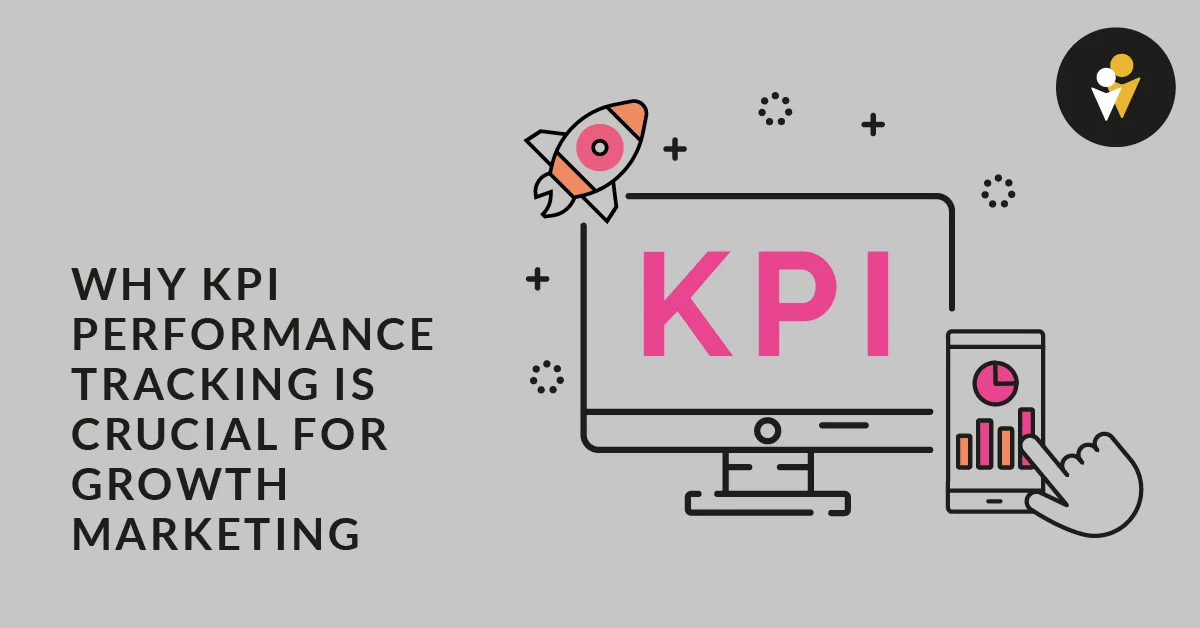In today's highly competitive and ever-evolving business landscape, growth marketing has become a critical component for companies looking to scale their operations and increase their revenue. Growth marketing is all about leveraging data-driven strategies and tactics to acquire, engage, and retain customers in a sustainable and scalable way.
One of the key elements of growth marketing is KPI performance tracking, which provides valuable insights into the effectiveness of marketing campaigns and helps to optimize them for better results. In this article, we will discuss why KPIs are important, how to choose KPI metrics for marketing, types of marketing KPIs, what KPIs marketers should be tracking, and KPI reporting.
Why are KPIs Important?
KPIs (Key Performance Indicators) are measurable values that provide insights into the performance of specific aspects of a business. In the context of growth marketing, KPIs are crucial for several reasons:
- Measure success:
KPIs provide a tangible way to measure the success of marketing efforts. By tracking KPIs, marketers can see how well their campaigns are performing and make data-driven decisions to optimize them. - Set goals:
KPIs help set realistic and measurable goals for marketing campaigns. By having defined KPIs, marketers know what's important to the company, helping them with strategic decisions and knowing what metrics to track. - Identify areas of improvement:
KPIs can highlight areas where marketing campaigns are underperforming, allowing marketers to identify and address issues before they become a significant problem. - Align team efforts:
KPIs help to align the efforts of different teams involved in marketing campaigns by providing a common goal and ensuring everyone is working towards the same objective.
How to Choose KPI Metrics for Marketing
Choosing the right KPIs is essential for effective marketing performance tracking. Here are some factors to consider when selecting KPI metrics for marketing:
- Business goals:
KPIs should align with overall business goals. For example, if the goal is to increase revenue, KPIs related to sales growth or customer lifetime value may be more relevant than KPIs related to website traffic. - Audience:
KPIs should be tailored to the target audience. For example, if the audience is primarily mobile users, KPIs related to mobile app engagement and retention may be more relevant than website metrics. - Industry benchmarks:
KPIs should be compared against industry benchmarks to determine how well a business is performing compared to its competitors. - Data availability:
KPIs should be based on data that is readily available and can be tracked accurately. Setting unrealistic KPIs based on limited data can lead to inaccurate reporting and poor decision-making.
Types of Marketing KPIs
Marketing KPIs can be divided into several categories, including:
- Acquisition KPIs:
These KPIs measure the effectiveness of marketing efforts in acquiring new customers. Examples of acquisition KPIs include website traffic, social media followers, and email subscribers. - Engagement KPIs:
These KPIs measure how well marketing efforts are engaging and retaining customers. Examples of engagement KPIs include click-through rates, time on site, and bounce rates.
- Conversion KPIs:
These KPIs measure how well marketing efforts are converting leads into customers. Examples of conversion KPIs include conversion rates, cost per acquisition, and customer lifetime value. - Retention KPIs:
These KPIs measure how well marketing efforts are retaining existing customers. Examples of retention KPIs include churn rate and repeat purchase rate.
What KPIs Marketers Should Be Tracking
The specific KPIs that marketers should track will depend on their business goals, target audience, and industry benchmarks. However, here are some commonly tracked KPIs in growth marketing:
- Cost per Acquisition (CPA)
This KPI measures the cost of acquiring a new customer. By tracking CPA, marketers can ensure that they are getting the most value for their marketing budget. - Conversion Rate
This KPI measures the percentage of website visitors who complete a desired action, such as making a purchase or filling out a form. By tracking conversion rates, marketers can optimize their website or landing pages for better results. - Customer Lifetime Value (CLV)
This KPI measures the total amount of revenue a customer is expected to generate over the course of their relationship with a business. By tracking CLV, marketers can focus on retaining high-value customers and maximizing their revenue potential. - Net Promoter Score (NPS)
This KPI measures customer satisfaction and loyalty by asking customers how likely they are to recommend a business to others. By tracking NPS, marketers can identify areas for improvement and focus on building a loyal customer base. - Return on Investment (ROI)
This KPI measures the return on marketing investment by comparing the revenue generated by a campaign to the cost of running the campaign. By tracking ROI, marketers can determine which campaigns are most effective and allocate their budget accordingly.
KPI Reporting
Once KPIs have been identified and tracked, it's important to report on them in a way that is meaningful and actionable. Here are some tips for effective KPI reporting:
- Use visualizations:
Visualizations such as graphs and charts can help to make KPI data more accessible and easier to understand. - Provide context:
KPIs should be presented in the context of business goals and industry benchmarks to provide a clear understanding of their significance. - Highlight trends:
KPIs should be tracked over time to identify trends and changes in performance. - Focus on actionable insights:
KPI reporting should highlight actionable insights that can be used to optimize marketing campaigns and improve results.
Using KPIs to Measure Marketing Performance
KPI performance tracking is a critical component of growth marketing. By identifying and tracking the right KPIs, marketers can measure success, justify a marketing budget, set goals, improve ROI, identify areas of improvement, and align team efforts. When choosing KPI metrics for marketing, it's important to consider business goals, target audience, industry benchmarks, and data availability.
Commonly tracked KPIs in growth marketing include CPA, conversion rate, CLV, NPS, and ROI. Effective KPI reporting should use visualizations, provide context, highlight trends, and focus on actionable insights. By leveraging KPI performance tracking, growth marketers can unlock the insights they need to scale their operations and increase revenue.






